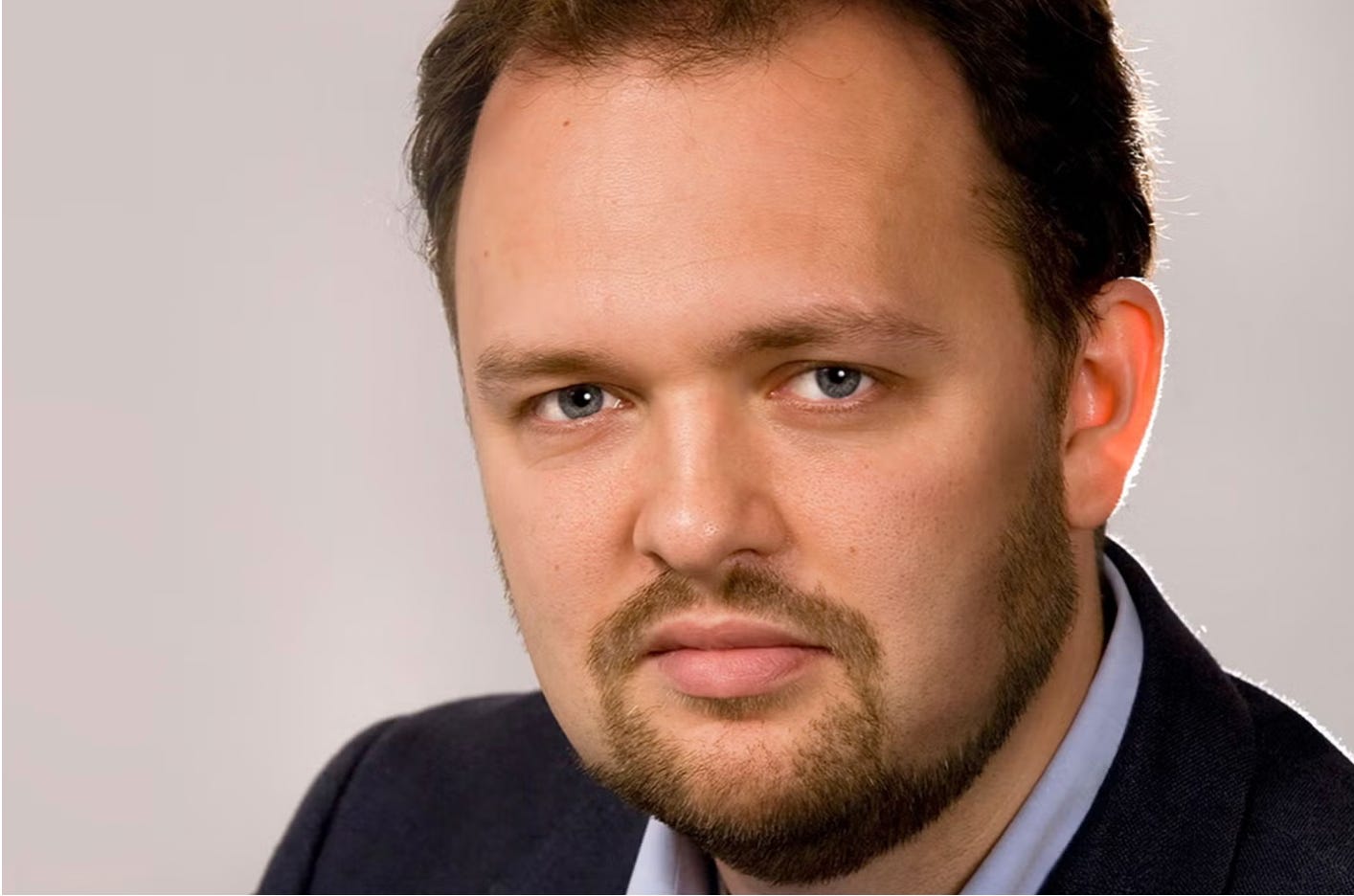Ross Douthat has weighed in, again, on sexual morality. The conservative New York Times columnist has a new column today, entitled The Quest for a New Sexual Morality, in which he marks a new era in American sexuality with the death of Hugh Hefner and the birth of the #MeToo movement, which was “founded on outrage over rape and sexual assault” but ended up transforming into a movement with “emphasized the ways that Hefnerism made life easy for pigs and libertines, forcing young women to accept male sexual expectations in the name of liberation — and promised to make it serve a more progressive and egalitarian vision.”
I generally find Douthat to be a bit of a finger-wagging scold, and fans of his will be relieved to learn that his prissiness remains on full display. As it happens, the merits of his argument are largely correct. We are struggling with human sexuality, in all of its forms. Douthat frames that struggle primarily through a moral prism, which is appropriate but perhaps a bit myopic.
Sexuality is moral, of course, but it’s so much more; it’s one of the fundamental building blocks of civilization, as enmeshed in the culture as power, money, religion, and status. None of those problems have been solved, either. We pay special attention to sexuality, however, because unlike those other categories which exist as more ephemeral concepts (even money is largely mythical), sexuality has a concrete, tangible reality which expresses itself, or is thwarted while trying to express, the sexual act, and all that this act entails in terms of emotional maturity and psychological health, not to mention the very real issue of biological health.
Attempting to find and impose a new sexual morality is putting the cart before the horse because we – Americans and Europeans; I can’t speak to the rest of the world - have never had a successful template for sexual morality. Neither “Hefnerism” nor Second and Third Wave Feminism nor #MeToo, nor polyamory, nor bigamy, nor anything else that’s been tried addresses the whole of human sexuality in a broad enough and satisfying enough way that could serve as a model for everybody.
That’s probably because sexuality is as much a philosophy as it is a biological imperative. It’s a philosophy, though, that depends not only on logical but also on the intangible. How does one measure attraction? Is the sexual act, when undertaken for personal gratification, consistent with our values and beliefs? What does it mean to be “in love,” and how does that relate to sexual activity? Must the two always co-exist for the sex to be “healthy”? Must sex always be an activity in which both parties have equal “power”? What is consent? How do we balance safety with intimacy? How do we ensure that men and women are both being heard and respected? How do we create a space within our personal sexuality that honors our vulnerabilities and fears? How do we help each other grow as people through our sexualities?
These are just a few of the questions that popped into my head over the last ten seconds. I don’t know the answers to any of them and I doubt anybody else does, either. I don’t know that there are answers. There is only a range of answers that vary depending on the people involved.
Personally, I’m just grateful that I’ve been married for 25 years so my sexual life is already set. I say, “Do you want to have sex?” My wife says, “Not really,” and that’s that.
I’m (mostly) joking, but I think it’s such a common occurrence among couples that it might be worth delving a little further into this scenario:
When my hypothetical wife says she doesn’t want to have sex, but I’m still horny, is it then ok for me to jerk off to porn? What does the new sexual morality say about these situations? Must one person in the relationship always sublimate their desires to the other? If my (hypothetical) wife continues to express disinterest in sex, at what point is it permissible for me to seek sex elsewhere? Is it ever permissible? Is this purely a negotiaton between myself and my wife? What is I asked her if I could have an affair and she said no? Am I obligated to spend the rest of my life as a celibate? What if our marriage is otherwise healthy? Is it better for the long-term status of the relationship to remain celibate or is sex so important that divorce might be the only answer?
And that’s just the most basic example.
Conservatives tend to point to earlier eras of coupling as better alternatives to what we have now. So many of them talk about the nuclear family as the ideal model. I agree that the basic husband/wife/coupla snot-nosed kids model of American sexual life has its merits if your sexuality happens to fall along the most familiar areas of the spectrum of human sexuality.
But that same model also has crippling effects for those who do not, or for those who find themselves victimized within the confines of such a marriage. The American nuclear family, which can be a healthy model, can be as abusive as any other. For example, In the Before Times to which conservatives want us to return, a married woman could legally not be raped. It wasn’t until the 1970’s that such marital rapes started to get passed, and it wasn’t until 1993 that a federal law prohibiting marital rape passed.
For most of us, sexuality remains a confusing and vaguely upsetting topic of conversation. We laypeople barely have any idea about sexuality’s most elementary nature. Most guys have a hard time even finding the clit.
So what are we doing? We’re so woefully undereducated about our own sexuality that it seems ludicrous to attempt to overlay an encompassing, or even coherent, sexual morality over the entirety of the culture.
That doesn’t mean we shouldn’t try, but we first need to figure out how to begin. The natural place, in my opinion, is sexual education beginning at a very early age in public schools. These early lessons should explore ideas of agreement and negotiation and, yes, consent. No need to get into the bits and baubles just yet. These lessons should be augmented with lessons in emotional intelligence, vulnerability, and trust. If we can transform our culture from one of anger, suspicion, paranoia, and mistrust into one of forthrightness, negotiation, compassion, and love, I suspect a mature sexual morality would naturally arise.
The problem, of course, is that I’m basically asking the human race to grow the fuck up, which doesn’t seem likely to happen any time soon. The results are as sad as they are predictable. Douthat’s heart, I think, is in the right place. But his analysis of the problem is overly-simple and reliant on a platonic ideal of sexual morality that has never existed before and is unlikely to exist any time soon. In the meantime, I would tend to err on the side of the cautious. Ask for consent, use birth control, and fuck like your life depends on it.






I don't want to upset you (it may have been consensual), but there's a third person in that picture of you and your wife. Mirror, mirror, on the wall.
Having read Douthat's column this morning, I enjoyed reading your excellent response so soon afterwards. This *girl raised Catholic* parsing these pieces involving morality and sex enjoyed the comic relief of laugh-out-loud jokes and selected photo choices. In all seriousness, yours was the more reasonable, informed take.